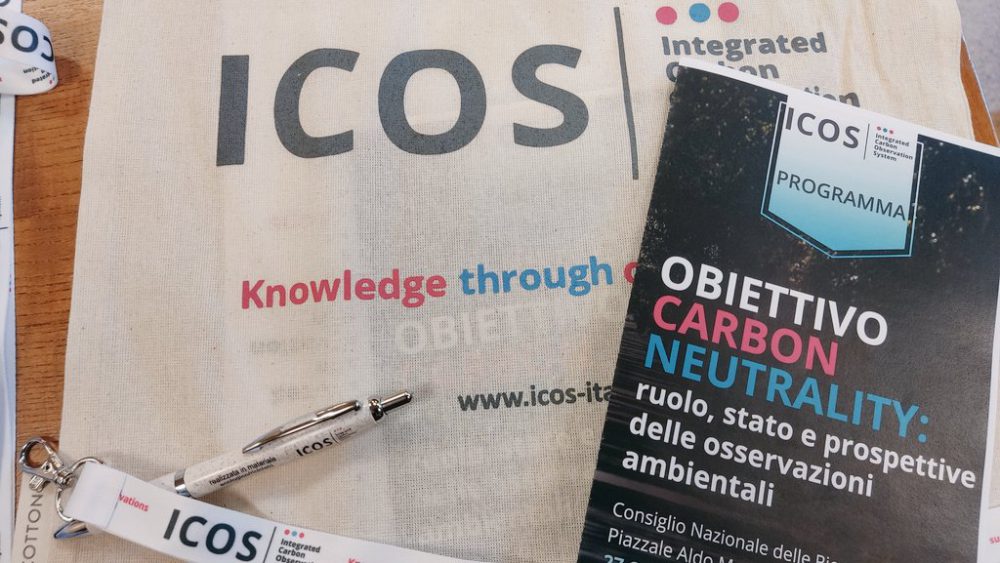Over the next two and a half years Italy will receive 150 million in investment in research infrastructures. Italian scientific community reunited in Rome, on September 27th and 28th, to confront about research on greenhouse gas measurements. The result is a highly interdisciplinary research landscape and a networked community, in Italy and in Europe, facing one of the most urgent challenges concerning climate change: the ability to provide high quality data on gas emissions and removals. During the first national conference of ICOS Italy, held in presence in Rome, almost 150 participants had the chance to discuss about these fundamental topics
Almost 70 studies presented, over 50 research institutions represented and almost 150 participants including representatives from startups, companies and different stakeholders: the first ICOS Italy national conference was held in Rome, on September 27th and 28th. The event gathered Italian scientific community whose work revolves around data collection and interpretation, emissions and absorption of greenhouse gases. The first national conference of ICOS Italy led to a broad and multidisciplinary discussion that highlighted knowledge, opportunities and upcoming challenges for the role of research in this area on both national and international extend. The works presented show that there are many fields and themes involved in the study and the data relating to the carbon cycle: urban environment, agricultural environment, natural terrestrial and marine ecosystems, to which is has to be added the decisive role of human activities.
The Conference was entitled “Mission Carbon neutrality: role, status and perspectives of environmental observations”, and it began with the presentation of Carlo Calfapietra, ICOS Italy Focal Point and Director of the Institute of Research on Terrestrial Ecosystems (IRET) of the National Research Council (CNR) and Fabio Trincardi, Director of the CNR Department of Earth System Sciences and Technologies for the Environment (DSSTTA). Then three keynote speakers explain the context between policy science and society. Riccardo Valentini, professor at the University of Tuscia, member of the Euro-Mediterranean Center on Climate Change – CMCC and President of the Italian Society for Climate Sciences – SISC, provided some useful informations about the recent assessment report on climate change of the IPCC. Giacomo Grassi, of European Commission Joint Research Center, illustrated the state of the art of measurement research. Gelsomina Pappalardo, Institute of Methodologies for Environmental Analysis, highlighted the importance of environmental research infrastructures in Europe and the growing and valuable role that Italy plays in this network. Maria Chiara Carrozza, President of the CNR, joined at the ending of the first day to meet and greet the participants.
“The 5% reduction in anthropogenic emissions observed in 2020 due to the pandemic has already been thwarted in one year, as ICOS data reveal”, said Carlo Calfapietra. “Atmospheric CO2 levels continue to increase, reaching values that now exceed 420 ppm. Climate change is also enhancing the risk of extreme weather events, putting the role of ecosystems reservoirs at risk. Among intervention strategies, we are expanding the arboreal heritage in 14 metropolitan cities. Many other initiatives are being launched, with the final goal to reach Carbon Neutrality by 2050”, Calfapietra added.
“As a unique nation in Europe, Italy will invest 150 million euros in the next 30 months to strengthen environmental research infrastructures. This will be possible thanks to the PNRR”, continued Dario Papale, professor at the University of Tuscia and Director of ICOS Ecosystem Thematic Centre (ETC).
The completely open and free access to high quality data is promoting ICOS measures, that are been used by different scientific communities, confirming the importance of European Research Infrastructures. In this context, Italy is carving out a central role in ICOS and in Europe, thanks also to the investment in numerous measurement sites (such as that of Florence, just added to the network, which will allow city’s emissions monitoring) and on one of the four European thematic centres (Ecosystem Thematic Centre, located in Viterbo). In addition, with the island of Lampedusa, Italy has the only site of the network that covers all components (atmosphere, oceans and ecosystems).
The second day of the conference was entirely dedicated to presentations and poster, commented and discussed by researchers and representatives. The event was a brilliant opportunity to reunite a growing multidisciplinary and national-spreaded community, open to Europe and the world, seeking answers to a problem that can only be tackled on a global scale, but which also has a strong regional, national and local dimension.


Comments are closed.